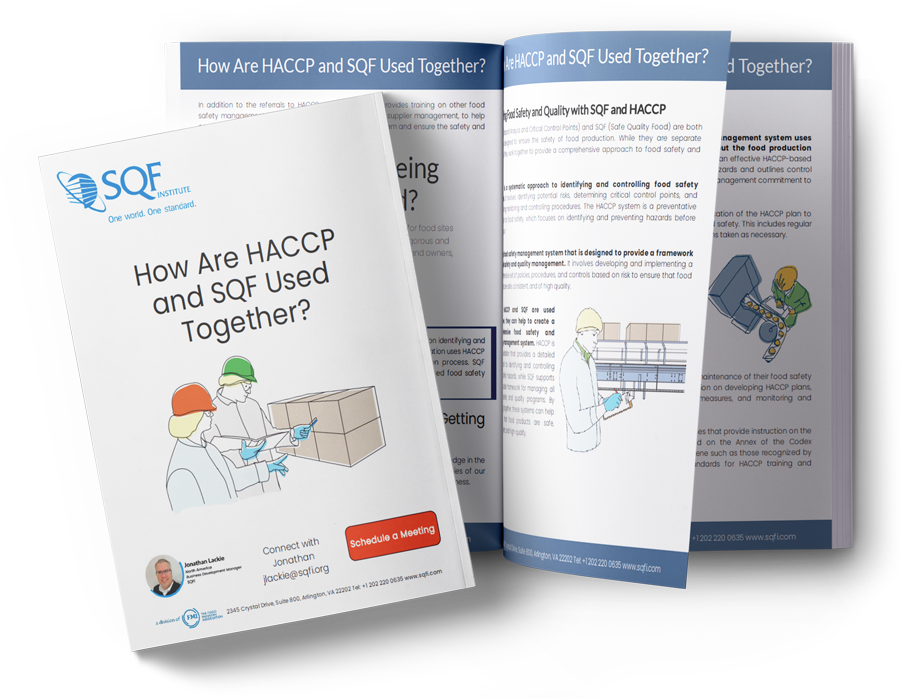SQF Practitioners
SQF practitioners and substitute practitioners are designated by the site’s senior management to oversee the development, implementation, review, and maintenance of the SQF system. Practitioners and substitute practitioners have the responsibility and authority to take action to ensure the integrity of the SQF system.
Practitioner Requirements and Registration
The requirements of the SQF practitioner are outlined in elements 2.1.1.4 and 2.1.1.5 of the SQF Code.

Requirements
The primary and substitute SQF practitioner shall:
- Be employed by the site.
- Hold a position of responsibility related to the management of the site's SQF System.
- Have completed an HACCP training course.
- Be competent to implement and maintain HACCP-based food safety plans.
- Have an understanding of the SQF Food Safety Code: Food Manufacturing and the requirements to implement and maintain an SQF system relevant to the site's scope of certification.
Certified SQF Practitioner Credential
The Certified SQF Practitioner credential, created by SQFI and Exemplar Global, provides a consistent framework for food safety. Those who earn this voluntary professional certification credential demonstrate their ability to implement, maintain, and continuously improve an SQF food safety system at any site.
Practitioner Training
SQF practitioners are required to successfully complete HACCP training; training in other food industry disciplines, good manufacturing/distribution/agricultural practices, and internal auditing may also be beneficial. The “Implementing SQF Systems” training course offered by all licensed SQF training centers is not mandatory but is strongly recommended for new practitioners.

How Are HACCP and SQF Used Together E-book
This e-book explores how the HACCP and SQF systems are interrelated, including the following:
- SQF Certification requires that companies implement an effective HACCP-based food safety management system that identifies potential hazards and outlines control measures to mitigate them.
- The HACCP system is a preventative approach to food safety, which focuses on identifying and preventing hazards before they occur.
- HACCP is a systematic approach to identifying and controlling food safety hazards. It involves identifying potential risks, determining critical control points, and establishing monitoring and controlling procedures.
- A strong food safety culture means that HACCP principles are already in place, and that you are already taking steps towards SQF Certification.
Need Help?
Our Customer Service team is here to help you during each step of the certification process.


